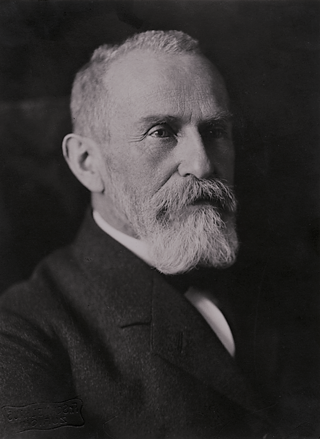Psychiatry
A Lesson from Bleuler on Schizophrenia
The classic psychiatrist’s wisdom is relevant now more than ever.
Posted October 28, 2019
For over a hundred years, schizophrenia has occupied a position of great import in psychiatry. Long considered the most serious form of psychopathology, the condition is notoriously debilitating, causing hallucinations, delusions, disorganized thinking, and a general breakdown of psychological functioning. The magnitude of the problem of schizophrenia was captured eloquently by the psychiatrist Szasz, who referred to it as the "sacred symbol of psychiatry." (Szasz himself was critical of psychiatry's conception of the problem.)

Since the advent of modern psychopharmacology in the 1950s, and especially since the 1980s, the psychiatric conceptualization of schizophrenia has become invariably genetic and biological in its nature. Interest in schizophrenia and psychotic disorder is virtually nonexistent among psychotherapists, despite research indicating psychotherapy can be an important component of schizophrenia treatment. In many cities, schizophrenia patients and family members cannot find a psychotherapist who accepts patients with schizophrenic illness.
The conceptualization of schizophrenia as a mental disease has largely followed the more general changes in psychiatric thinking over time. The history of psychiatry is characterized by several major paradigmatic shifts, each occurring largely in reaction to the one preceding it. Emil Kraepelin, the father of modern scientific psychiatry, was chiefly biological and descriptive in his persuasion. The psychoanalysts who dominated mid-20th century American psychiatry had little interest in biological investigation. Robert Felix, the first director of the National Institutes of Mental Health, explicitly forbade funding on biological research in the 1950s. Many psychopharmacologists of the late 1980s and 1990s shunned psychotherapy and psychoanalysis as outmoded and archaic. After all, the 1990s was the "Decade of the Brain."
There is good reason to suspect that in recent years the pendulum in psychiatry is swinging back towards a more comprehensive, biopsychosocial approach. The genetic research seems to have hit a dead end, and very few novel psychiatric drugs are in the pipeline of development. Amongst current psychiatry trainees, my sense is that many of them have appreciation for psychosocial perspectives and real interest in learning psychotherapy.
The first psychiatrist to offer a unified biological and psychological approach to schizophrenia was Eugen Bleuler, who is perhaps best known as the originator of the term "schizophrenia." Prior to Bleuler's conceptualization, the disease was known as dementia praecox (Kraepelin's term) and was believed to be an early form of dementing illness. Bleuler observed that not all patients with the disease become demented, and not all of them fall ill in early life. He suggested "schizophrenia" in 1908, from the Greek for "split mind," to denote what he saw as a disease that, at its core, results in a splitting of the psychological functions of man.

In 1898, Bleuler was appointed director of the Burghölzli psychiatric hospital in Switzerland. Up until that time, Burghölzli was known as a center for biological (and especially neuroanatomical) research on mental illness. When Bleuler assumed the helm, his intention was to institute a more comprehensive approach. An early admirer of Freud, Bleuler believed that both biological and psychoanalytic theories proved useful in the understanding and treatment of mental disease.
Bleuler had a personal connection to schizophrenia that undoubtedly shaped his belief in the need for psychiatrists to foster human relationships with their patients. When he was seventeen, his sister developed a catatonic psychosis and was admitted to the Burghölzli and treated by the decidedly biologically-minded neurologist Eduard Hitzig. The Bleuler family was outraged by Hitzig's aloof attitude towards their daughter, and also by his inability to understand much of what she was saying due to a significant language (German dialect) barrier.
When Bleuler did become a psychiatrist, he adopted an unusually personal approach with his patients, making sure to spend ample time with them and to talk with them about the details of their experiences and beliefs. In stark contrast to his biological counterparts, Bleuler believed that psychotic symptoms possessed meaning and that sense could often be made of them if psychiatrists simply took the time to listen to their patients' seemingly nonsensical productions.
Freud was astonished by Bleuler's endorsement, writing to his friend Wilhelm Fleiss in 1904, it was "an absolutely stunning recognition of my point of view … by an official psychiatrist, Bleuler, in Zürich. Just imagine, a full professor of psychiatry … supporting … my studies of hysteria and the dream…" Bleuler even went so far as to recommend Freud for a Nobel Prize.
But Bleuler's agreement with Freud went only so far. Bleuler believed firmly that both biochemistry and psychoanalysis were needed to make sense of an affliction as complicated as schizophrenia. He proposed a middle path and, in the process, became perhaps the first psychiatrist to advocate for a unified theory of schizophrenic disease.
Freud, however, had no tolerance for middle paths and, as history clearly shows, shunned anyone who expressed even slight disagreement with his psychoanalytic ideas. To Freud, psychoanalysis was his science—and his science alone. Bleuler's balanced approach to schizophrenia deviated too far from Freud's dogmatic teachings, and the two split ways in 1911 when Bleuler tendered his resignation from the International Psychoanalytic Association (IPA).
Nevertheless, Bleuler's point had been made. In standing up to Freud and insisting the need to understand the biological and genetic in addition to the psychological, Bleuler paved the way for future psychiatrists interested in the problem of schizophrenia. Silvano Arieti, the psychoanalytically-trained Italian American psychiatrist, echoed Bleuler's integrated approach in his award-winning 1974 book The Interpretation of Schizophrenia. Arieti became perhaps America's foremost authority on schizophrenia, and his work continues to serve as a basis for a unified biopsychosocial approach to psychotic illness (see Ruffalo, 2019).
More than a hundred years after Bleuler's original work at the Burghölzli, his ideas on schizophrenia remain relevant to modern psychiatric practice. The schizophrenic patient is not merely suffering a disturbance in neurobiology, but is communicating in a rich, symbolic language to be interpreted and made sense of via psychotherapy. The psychological and the biological are complementary, not antagonistic, approaches to the disease. They simply represent two ways of looking at the phenomenon and exist at different layers of understanding.
As the pendulum in psychiatry moves closer to a total, integrated theoretical approach, clinicians would be wise to heed Bleuler's classic lesson on schizophrenia. Biologically reductionistic theories of the disease are as misguided as the strictly psychoanalytic ones that preceded them. As Bleuler wrote in his resignation from the IPA, "'all or nothing' [thinking] … is necessary for religious communities and useful for political parties … [but] I find that it is harmful for science" (Falzeder, 2007).
Author's note: For a more thorough reading of Bleuler's vast contributions to schizophrenia, and of the history of psychiatry in general, I suggest Anne Harrington's recent book Mind Fixers: Psychiatry's Troubled Search for the Biology of Mental Illness.
References
Falzeder, E. (2007). The story of an ambivalent relationship: Sigmund Freud and Eugen Bleuler. Journal of Analytical Psychology, 52(3), 343-368.
Freud, S. (1904, April 26). Letter to Wilhelm Fleiss. Quoted in J. A. Masson (1998), The assault on truth: Freud's suppression of the seduction theory (p. 461). New York, NY: Pocket Books.
Ruffalo, M. L. (2019). Understanding schizophrenia: Towards a unified biological and psychodynamic approach. Psychoanalytic Social Work. Advance online publication. doi: 10.1080/15228878.2019.1616570




